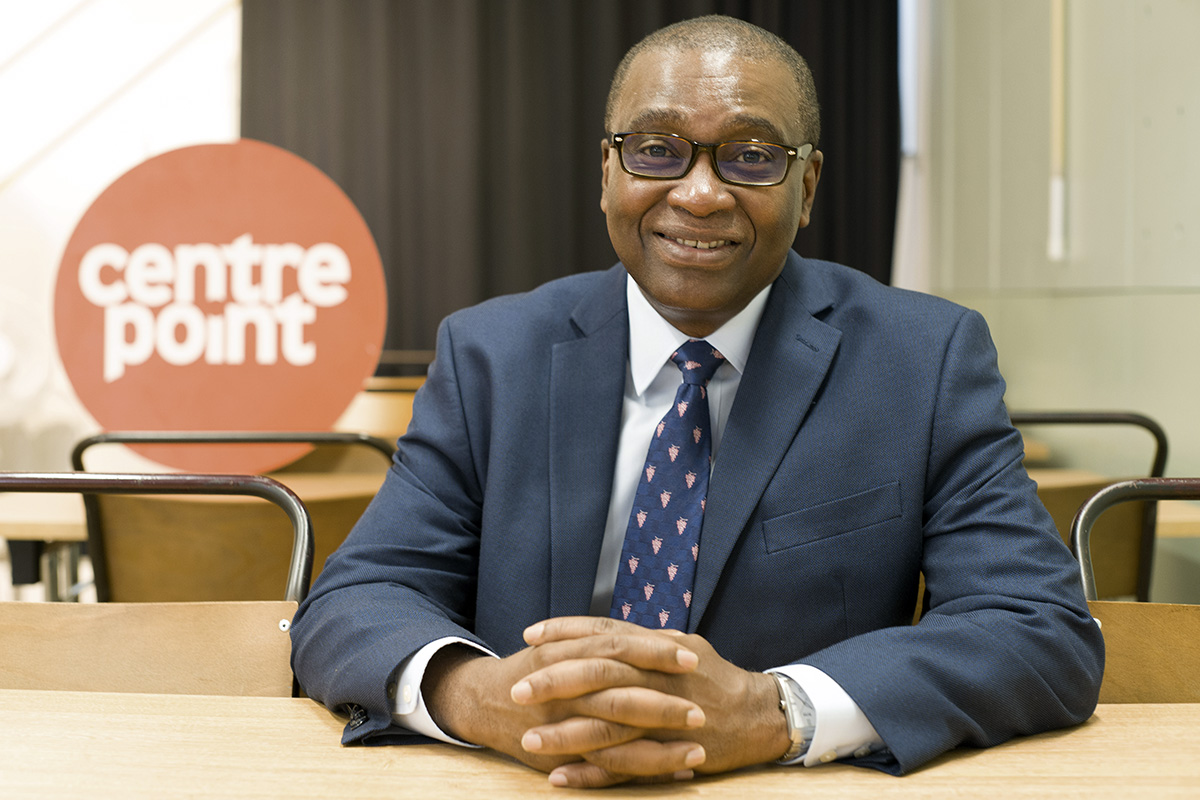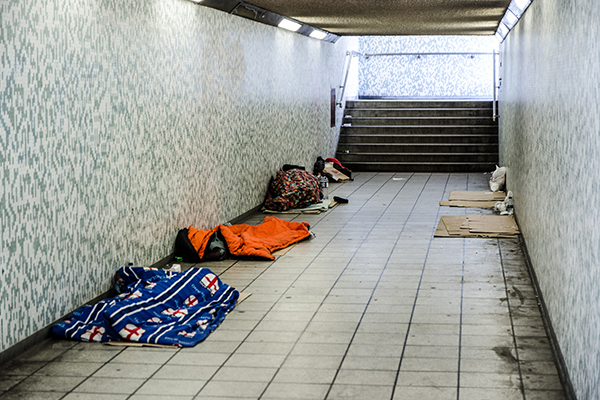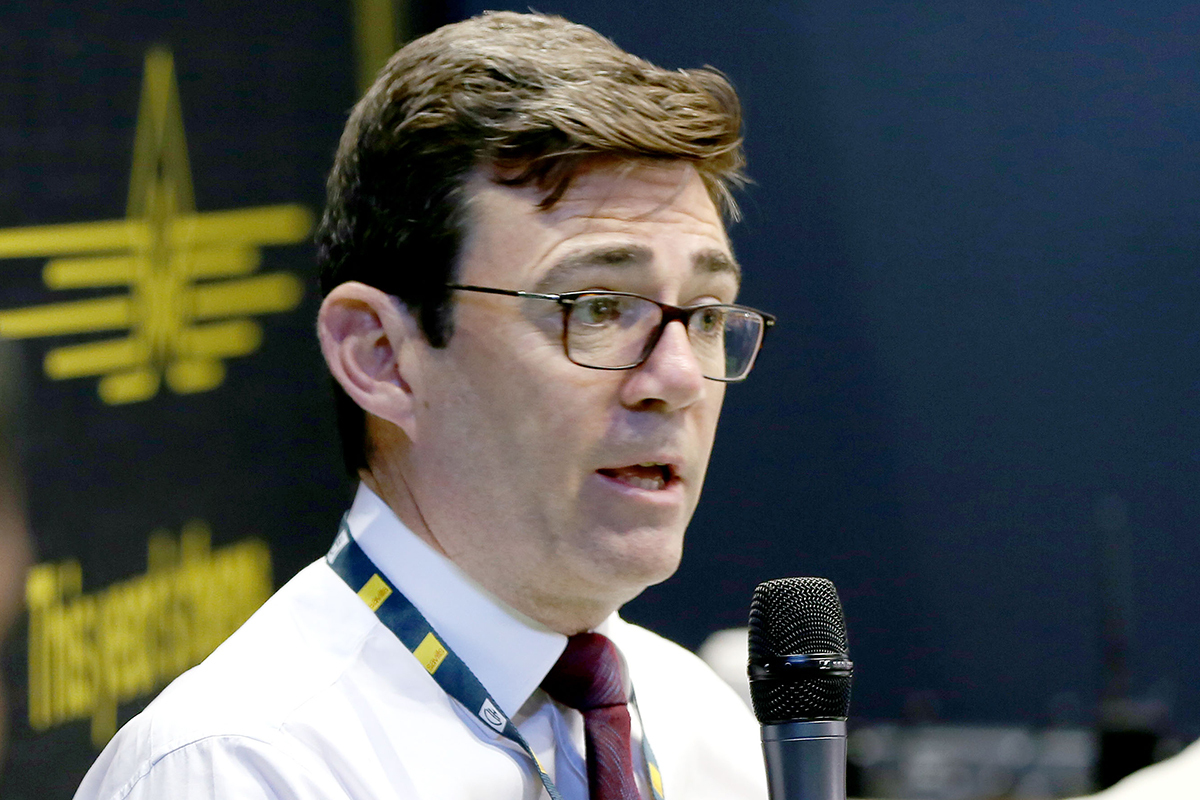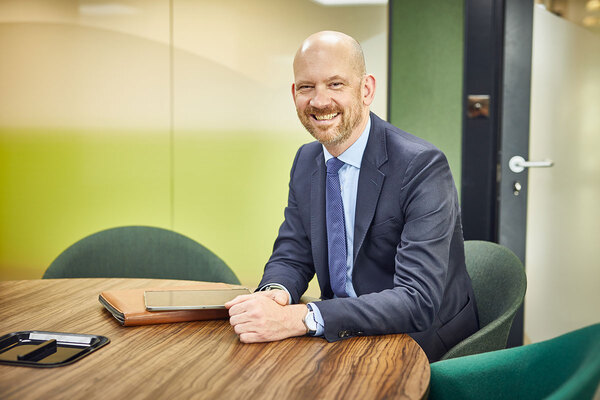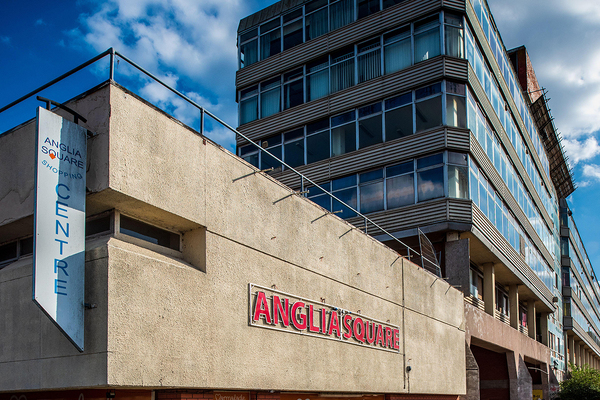You are viewing 1 of your 1 free articles
15 minutes with… Seyi Obakin, chief executive at Centrepoint
Seyi Obakin has been the chief executive of youth homelessness charity Centrepoint for more than a decade. Lucie Heath catches up with him to discuss the pandemic, policy and how modular construction can play an important role in ending homelessness among young people
What impact has the pandemic had on youth homelessness?
The pandemic has affected youth homelessness in four ways. First is the question of home. At Centrepoint we’ve seen a third more calls to our helpline from young people asking for help because they don’t have a place to live.
At the same time, the pandemic has had a significant impact on the mental health of young people, particularly during lockdowns.
And the third impact is on young people who have been homeless and are in homelessness settings where we are telling them, and they are accepting, that their route out of homelessness is to get a job. We haven’t been able to actually give them as much of that skills and employability work that we would have done [before the pandemic].
Finally, on the employment front, I think the pandemic has affected young people disproportionately. We know, for example, from callers to our helpline, that there has been an 11% increase in the number of people who are calling and finding that they are out of work.
What is currently the largest barrier to ending youth homelessness?
I feel we have to find a way to stop the flow of young people who are becoming homeless every year. That means that we have to invest some energy in preventing them from becoming homeless in the first place.
We know, for example, that 120,000 young people last year approached local authorities across the country asking for help because they’re homeless; 120,000 young people fills Wembley Stadium [nearly] one-and-a-half times over.
That means we need a strategic view from government in which they make youth homelessness a strategic priority across government departments.
The government has a goal to end rough sleeping by 2024. Do you think this focus on rough sleeping can be unhelpful as it distracts from the bigger picture?
It’s not unhelpful. Rough sleeping is really, really bad. We don’t want anyone to be sleeping rough and we know from recent CHAIN data, at least in London, that the pandemic has made rough sleeping worse.
What’s interesting also is that the government’s response at the beginning of the pandemic shows that our ambition to end rough sleeping should be sooner because we can get it done, because we did it when the will was there.
But we must not be lulled into thinking that if we solve rough sleeping we’ve solved homelessness. Rough sleeping is terrible, but it is only the most precarious and heart-wrenching face of the problem.
What can you tell us about Centrepoint’s Independent Living Programme?
At least one in five young people who use our services are ready to move on, but they are unable to do so because there’s no way they can afford to move, particularly in urban areas.
The Independent Living Programme is about giving those young people a place to live, a bridge between supported accommodation and private renting, or even buying their own properties.
These Independent Living homes are places where if they have got a job, they can come and live in them, and their rent won’t be market rent, it won’t be affordable rent, it won’t be social rent – it will be marked to their income.
Whatever their income is, they pay roughly a third of that income on rent and that means that whatever job they do, whatever career they wish to pursue over the five-year period they have in Independent Living, they will be able to focus on building their career and being successful in it without worrying about housing costs.
Why is modular construction such a key part of the programme?
Modular enables us to use land that we don’t own on a temporary basis. It means we can put it on meanwhile-use land and then move it on from that land when the time comes for us to hand it back.
The second thing is that these modular buildings are now a long way away from where modular buildings were 20 to 30 years ago. They’re really good buildings now and they can be constructed very, very quickly. So the time between starting the programme and handing over to a young person can really be compacted.
What more would you like to see the housing sector do to prevent youth homelessness?
I would like to see the housing sector invest more energy in preventing youth homelessness from happening in the first place and that means that the sector needs to work with families beyond just providing housing for them and needs to work in mediation, for example, to stop families splitting apart and causing homelessness.
The second thing I think we need to do would be if you think about the sort of properties that are developed now, they’re focused mostly on families and that’s a good thing, but that singular focus on families leaves young people out of the equation altogether.
So I’d like to see the sector think a bit more widely about what sort of properties we need to be developing for young people.
‘15 minutes with…’ series
In our ‘15 minutes with…’ series, we have a quick chat with the biggest names in the sector about the most important issues.
Previously, we have featured:
Barbara Brownlee, chief executive of Soho Housing
Eddie Hughes, former minister for rough sleeping and housing
Geeta Nanda, chief executive of Metropolitan Thames Valley Housing
David Bogle, chair of Homes for Cathy
Laurence Carr, money coach at Yorkshire Housing
Dinah Roake, chair of the London Housing Panel
Sheron Carter, chief executive at Hexagon
Helen Spencer, executive director of growth at Great Places
Julie Wittich, executive director of assets and sustainability at Accent
Ian Mulheirn, executive director of policy at the Tony Blair Institute for Global Change
Kevin Ruth, chief executive of Together Housing
Piers Williamson, chief executive of The Housing Finance Corporation
Seyi Obakin, chief executive at Centrepoint
Fayann Simpson, senior independent director at L&Q
Mark Perry, chief executive at Vivid
Rose Bean, executive director of assets and sustainability at Abri
Ruth Cooke, chief executive at GreenSquareAccord
Ben Denton, managing director at L&G Affordable Homes
Simon Dudley, chair at Ebbsfleet Development Corporation
Emma Palmer, chief executive at Eastlight Community Homes
Tracy Harrison, chief executive at Northern Housing Consortium
Sign up for our homelessness bulletin
Already have an account? Click here to manage your newsletters
